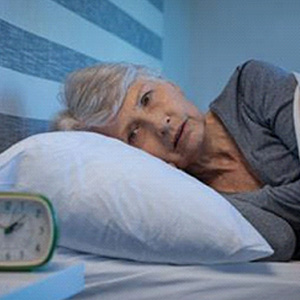Sleep apnea is a sleep disorder that causes you to stop breathing while you sleep and can have devastating effects on your quality of life. It’s formally diagnosed using a sleep study or polysomnogram, but the first steps to deciding whether you need a sleep study start at home and with an exam by a qualified professional. Many symptoms related to sleep apnea are misdiagnosed as separate medical issues. Some of the most common are:
Snoring
Everyone occasionally snores, especially if you have a cold or allergies, but if it is a chronic condition, it can affect not only your sleep but the quality of sleep for those around you. If you wake yourself up while snoring or snore loud enough to disturb the rest of others, it may be a sign of something more serious. Check out these symptoms of Sleep Apnea from the Mayo Clinic
Bruxism/Teeth Grinding
Doctors aren’t quite sure why there’s a correlation between bruxism and sleep apnea. It may be that an episode of sleep apnea triggers a stress response in the body resulting in clenching or maybe when the brain is deprived of oxygen, it sends a signal to the jaw to tighten which stiffens the soft tissue in an attempt to open the airway.
Daytime Sleepiness
Do you feel tired upon waking or need that third cup of coffee just to get going in the morning? If you find yourself ready for bed before you even get dressed in the morning, sleep apnea might be to blame. An occasional poor night’s sleep happens, but if you consistently wake up feeling sluggish and like you’ve run a marathon all night, sleep apnea might be to blame.
A Sore Throat
Prolonged nighttime snoring can cause a chronic sore throat that’s continuously irritated. The vibration of the soft tissue causes snoring as you breathe in and out. If you have sleep apnea and have several periods of snoring each night, this soft tissue can become irritated and inflamed causing a sore throat that never really gets better.
Forgetfulness and Brain Fog
Do you spend most of your day thinking you’d lose your head if it weren’t attached to your body? A classic symptom of sleep deprivation is a fuzzy feeling or forgetfulness, sometimes called brain fog. If you have even a few episodes of sleep apnea each night, you aren’t getting that deep REM sleep that your brain needs to rest and heal other systems of your body.
Insomnia
It might sound odd that a sleep disorder that causes daytime sleepiness can also cause insomnia, but it’s true. Suddenly and repeatedly waking from an episode of sleep apnea might make it difficult for you to fall back to sleep.
Headaches
Headaches are one of the most common symptoms of sleep apnea. When you stop breathing during an episode of sleep apnea, less oxygen is moving to the brain. To compensate for this, the blood vessels widen, and this pressure is what causes headaches.
Irritability and Depression
If you’ve ever had a bad night’s sleep, you know how it can affect your mood the next day. If you have sleep apnea, this can become a chronic condition because your brain and body never get restorative sleep. Sleep apnea can prevent your brain from going into the deep sleep cycle followed by REM sleep, the sleep cycles responsible for your body’s healing and rejuvenating. This loss of restful sleep can make you short-tempered, anxious, irritable, and over the long term can contribute to depression. At Go To Sleep Center, we offer our patients a means to regain control of their sleep apnea symptoms, improve their sleep quality, stop snoring, and above-all—improve their lives. Contact Us today to learn how we can help you live better & sleep better!

